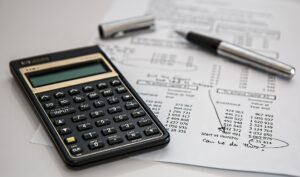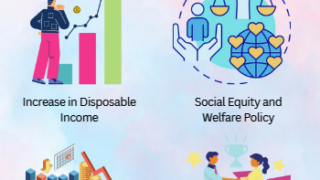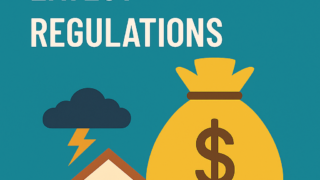From January 1, 2026, business households will declare and pay taxes themselves according to new regulations, increasing transparency and initiative in tax management. From January 1, 2026, business households will officially apply the method of declaring and paying taxes themselves according to new regulations of the tax authority. Instead of paying lump-sum taxes as before, business households declaring taxes in 2026 will calculate, declare and pay taxes themselves, helping to be more transparent and accurately reflect actual revenue.
What is self-declaration and self-payment of tax by business households?
Currently, most business households pay taxes in the form of lump sums – that is, the tax authority determines the revenue and the amount of tax payable, but from January 1, 2026, this mechanism will end. Instead, business households must declare their actual revenue and pay taxes according to the amount incurred.
Specifically, business households will be responsible for keeping records, making declarations and paying taxes periodically (usually quarterly). The tax authority will conduct post-audits and compare data through the electronic system and invoice data.
Thus, from 2026, the lump sum tax regime will officially end after more than 20 years of existence, giving way to a more transparent and modern tax management method.
Legal basis and time of application

1. Decree and related guiding circulars
Clause 6, Article 10 of Resolution 198/2025/QH15 – passed on May 17, 2025, business households and business individuals will no longer apply the lump-sum tax method, but must declare and pay taxes according to the provisions of the Law on Tax Administration.
It is expected that the Ministry of Finance will promulgate a separate guiding Circular for business households to declare and pay taxes themselves in 2025, including:
- Regulations on applicable subjects and revenue thresholds that must be declared.
- Methods of recording accounting books and preparing tax declarations.
- Instructions on registering tax codes, declaring business household information.
- Procedures for electronic tax payment and handling of administrative violations in false declarations.
These regulations are based on the principle of “self-declaration – self-payment – self-responsibility”, helping business households to be more proactive in financial management and comply with the law.
2. Business households must declare and pay taxes themselves
According to the draft of the Ministry of Finance, business households with revenue of over 100 million VND/year will have to declare taxes. Some specific groups of subjects include:
- Business households with stable scale of trading, production and service.
- Business households with registered tax codes and electronic invoices.
- Business households that use workers, rent premises, sell online or have revenue that continuously exceeds the threshold.
Households with small revenue (under 100 million VND/year) can still be exempted from some types of taxes, but still need to declare and submit tax reports on time to ensure transparency of income from business activities.
Comparison: Pay old lump sum tax and declare – pay new tax yourself
| Criteria | Lump-sum tax (old) | Declaration – self-submission (new) |
| How to calculate tax | Tax authorities determine based on revenue estimates | Households self-determine actual revenue and expenses |
| Level of transparency | Low, prone to negativity | High, with full documentation |
| Management tools | Manual, paper notes | eTax system, electronic invoices |
| Responsibility | Pre-calculated tax, less proactive households | Self-declaration and self-responsibility |
| Fit | Small household, low revenue | Medium and large households with simple accounting systems |

1. Benefits and risks of switching to the new method
Benefits:
- Transparency, accurately reflecting revenue and profit.
- Proactive in financial management and tax payment.
- Reduced disputes with tax authorities on lump sums.
- Convenient when expanding scale, applying for business registration.
Risks and challenges:
- Need basic accounting knowledge to declare correctly.
- Increased initial costs for accounting software or services.
- Risk of being fined if declaring incorrectly or paying late.
2. Responsibility of business households in accurate declaration
According to the new regulations, business households must take full responsibility for the honesty and accuracy of the declared data. If they declare incorrectly, underpay taxes or commit fraud, they will be punished according to the Law on Tax Administration, which can be up to 20% of the under-declared tax and late payment fees.
Therefore, businesses need to be proactive:
- Keep complete records and save invoices and documents.
- Use accounting software or seek advice from professional accounting services.
- Check periodically with tax authorities to avoid errors.
The official application of the method of self-declaration and self-payment of taxes for business households from January 1, 2026 is a big step forward in the modernization of the Vietnamese tax system. Although there are many initial changes and challenges, with good preparation from 2025, and support from tax authorities and accounting services, business households can completely adapt quickly and be more proactive in the new period.
The self-declaration and self-payment method is considered a strong transformation of the Vietnamese tax industry, aiming towards a more modern, transparent and fair tax management system, in line with the trend of digitalizing the economy.
For any inquiries, contact Wacontre Accounting Services via Hotline: (028) 3820 1213 or email info@wacontre.com for prompt assistance. With a team of experienced professionals, Wacontre is committed to providing dedicated and efficient service. (For Japanese clients, please contact Hotline: (050) 5534 5505).






